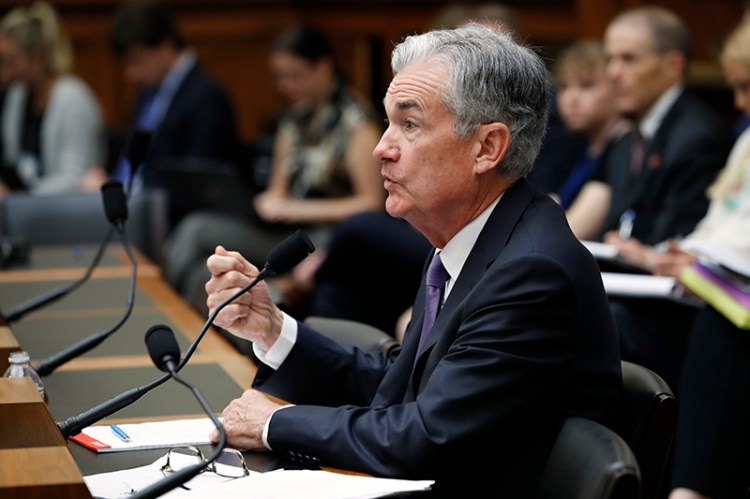President Trump on Thursday said he’s “not thrilled” the U.S. central bank under Fed Chairman Jerome Powell is continuing to raise interest rates, suggesting the Fed may be undercutting his efforts to grow the economy.
“I don’t like all of this work that we’re putting into the economy and then I see rates going up,” he said.
Presidents have long declined to comment on the Fed’s actions, out of respect for the independence of the institution, and to avoid any hint of political influence over the nation’s monetary supply. CNBC released details of the Trump interview in a story on its website Thursday.
“Now I’m just saying the same thing that I would have said as a private citizen,” Trump said, according to CNBC. “So somebody would say, ‘Oh, maybe you shouldn’t say that as president. I couldn’t care less what they say, because my views haven’t changed.”
Trump nominated Powell as Fed chairman last year to replace Janet Yellen. Powell was a governor on the Fed and has largely followed the path the Fed has been on for years, slowly raising interest rates as the economy strengthens, unemployment declines and inflation stirs.
The Fed slashed short-term rates to near zero in the wake of the 2008 financial crisis. In June, the nation’s central bank raised rates for the seventh time since December 2015, in a move designed to slowly cool the economy.
For years presidents have avoided commenting on the Fed, which markets broadly trust to act in service of its dual objective – maintaining maximum inflation and stable prices – rather than a political aim. In 1972, President Richard Nixon pressured then-Fed Chairman Arthur Burns to keep rates low, despite signs that the economy was overheating, in order to help his re-election campaign. Nixon won a second term in November 1972, but by the following year, consumer prices were increasing at an annual rate of nearly 10 percent.
Trump’s desire to keep rates low is a major change in GOP thinking on the Fed. Republicans have for years criticized the Fed for keeping interest rates too low, which they said would lead to runaway inflation. Despite nearly a decade of unusually low interest rates, and other extraordinary Fed action, inflation has remained tame.
Consumer prices have increased 2.9 percent over the past 12 months, the Bureau of Labor Statistics reported earlier this month.
Send questions/comments to the editors.



Comments are no longer available on this story